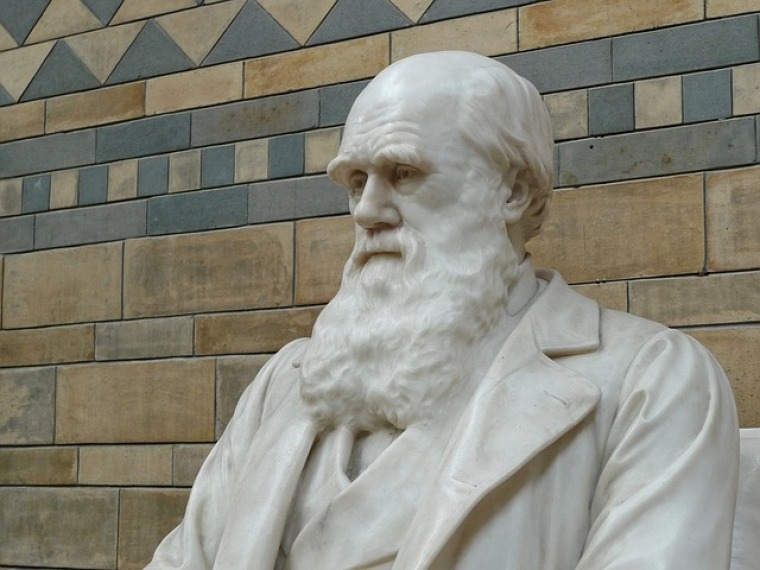Majority of Britons reject creationism but some are still skeptical about evolution

A new poll has indicated that a majority of people in the U.K. reject the biblical account of Creation but a significant number of religious people are still skeptical about the theory of evolution.
A Newman University/YouGov survey has found that only nine percent of people in Britain accept creationism, but 19 percent of religious people in the country found it somewhat difficult, difficult or very difficult to accept evolutionary science.
The study, which was released at the British Science Festival in Brighton, West Sussex, on Tuesday, was part of a wider international research project called "Science and Religion: Exploring the Spectrum" funded by the Templeton Religion Trust. It was conducted between May 12 and June 12 among 4,000 adults across the U.K. and Canada.
The findings revealed that 71 percent of the respondents in the U.K., including those with religious beliefs, accept evolutionary theory regarding the origin of species. Around 64 percent said they found it easy to accept evolutionary science as compatible with their personal beliefs, while 64 percent of people with religious beliefs found evolution to be compatible with their faith.
Surprisingly, one in five atheists in the U.K. said they were not satisfied with evolutionary theory, saying they agreed that "evolutionary processes cannot explain the existence of human consciousness." Ten percent of atheists in the country said they also felt that evolution cannot explain the origins of human beings.
In Canada, 60 percent said that they accept the theory of evolution and only 15 percent accept the biblical Creation story.
Fifty percent said they found it easy to accept evolutionary science, while 41 percent of Canadians with religious beliefs found evolution to be compatible with their faith. More than one in three Canadian atheists say they were unsatisfied with evolutionary theory, and 31 percent of unbelievers say they felt that evolution cannot explain the origins of human beings.
Other findings have indicated that individuals struggling with evolutionary theory do not have similar doubts about other fields of science. The respondents, which include Christians, Muslims, Jews, Hindus, Buddhists and Sikhs, overwhelmingly accept science as a reliable source of knowledge.
"What these surprising findings highlight for the first time is that concerns about evolutionary science aren't necessarily based solely on individuals' religious identity," said Fern Elsdon-Baker, the study's principal investigator and the director of the project, according to Religion News Service.
"We found a range of people are uncertain of evolutionary science-based explanations for the origin of humans and human consciousness. It appears rejection of or uncertainty about aspects of human evolution is not necessarily an issue of 'religion versus evolutionary science,' but an issue of universal questions around what it is to be human and about the human experience that affect all of us, across those of all faiths and none. This fundamentally challenges the way we tend to think about evolution and creationism," Elsdon-Baker added.
 Christians don't have to affirm transgenderism, but they can’t express that view at work: tribunal
Christians don't have to affirm transgenderism, but they can’t express that view at work: tribunal Archaeology discovery: Medieval Christian prayer beads found on Holy Island
Archaeology discovery: Medieval Christian prayer beads found on Holy Island Presbyterian Church in America votes to leave National Association of Evangelicals
Presbyterian Church in America votes to leave National Association of Evangelicals Over 50 killed in 'vile and satanic' attack at Nigerian church on Pentecost Sunday
Over 50 killed in 'vile and satanic' attack at Nigerian church on Pentecost Sunday Ukrainian Orthodox Church severs ties with Moscow over Patriarch Kirill's support for Putin's war
Ukrainian Orthodox Church severs ties with Moscow over Patriarch Kirill's support for Putin's war Islamic State kills 20 Nigerian Christians as revenge for US airstrike
Islamic State kills 20 Nigerian Christians as revenge for US airstrike Man who served 33 years in prison for murder leads inmates to Christ
Man who served 33 years in prison for murder leads inmates to Christ


 Nigerian student beaten to death, body burned over ‘blasphemous’ WhatsApp message
Nigerian student beaten to death, body burned over ‘blasphemous’ WhatsApp message 'A new low': World reacts after Hong Kong arrests 90-year-old Cardinal Joseph Zen
'A new low': World reacts after Hong Kong arrests 90-year-old Cardinal Joseph Zen Iran sentences Christian man to 10 years in prison for hosting house church worship gathering
Iran sentences Christian man to 10 years in prison for hosting house church worship gathering French Guyana: Pastor shot dead, church set on fire after meeting delegation of Evangelicals
French Guyana: Pastor shot dead, church set on fire after meeting delegation of Evangelicals ‘Talking Jesus’ report finds only 6% of UK adults identify as practicing Christians
‘Talking Jesus’ report finds only 6% of UK adults identify as practicing Christians Mission Eurasia ministry center blown up in Ukraine, hundreds of Bibles destroyed: 'God will provide'
Mission Eurasia ministry center blown up in Ukraine, hundreds of Bibles destroyed: 'God will provide' Church holds service for first time after ISIS desecrated it 8 years ago
Church holds service for first time after ISIS desecrated it 8 years ago Burger King apologizes for 'offensive campaign' using Jesus' words at the Last Supper
Burger King apologizes for 'offensive campaign' using Jesus' words at the Last Supper Uganda: Muslims abduct teacher, burn him inside mosque for praying in Christ’s name
Uganda: Muslims abduct teacher, burn him inside mosque for praying in Christ’s name